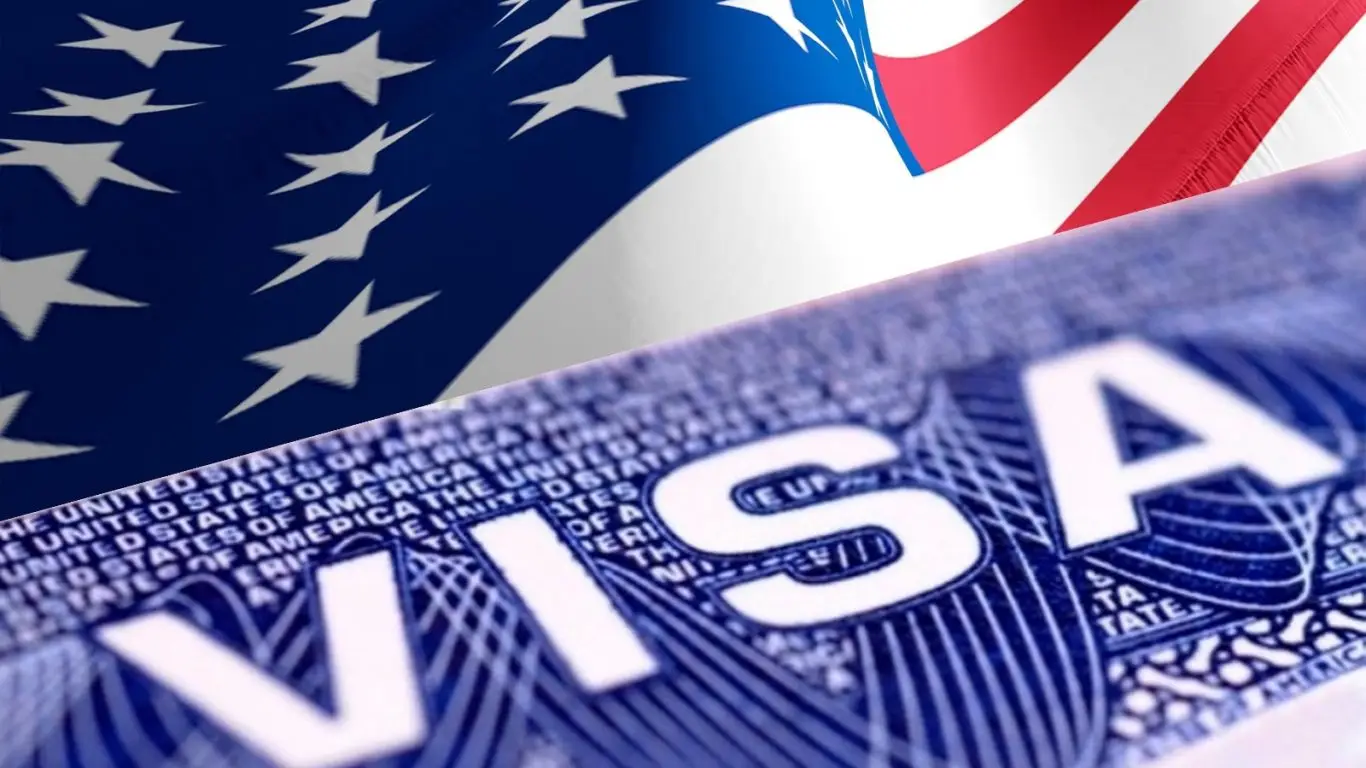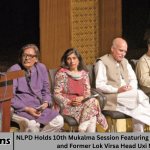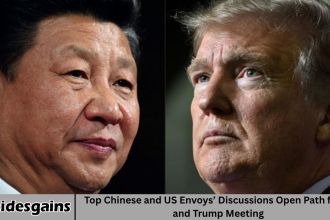The United States has announced a sweeping review of nearly 55 million visas, marking one of the largest immigration-related undertakings in modern history. This unprecedented move is aimed at identifying potential violations of visa rules, weeding out fraud, and strengthening national security. While officials say the review is part of a broader effort to enhance border management and immigration compliance, the announcement has sparked debate about its timing, its execution, and its impact on millions of foreign nationals living and working in the U.S.
- A Historic Review of 55 Million Visas
- Why Now? The Political and Security Context
- How the Review Will Work
- Human Impact: Anxiety and Uncertainty
- Economic Stakes: The Role of Immigrants in the U.S.
- National Security Angle
- Political Reactions
- Global Reactions
- Balancing Security and Humanity
- FAQs
- Why is the U.S. reviewing 55 million visas?
- Who will be affected by the visa review?
- Will the review affect legal immigrants who have followed the rules?
- How long will the review process take?
- What could be the impact on the U.S. economy?
- How are other countries responding?
- Is this move politically motivated?
- Conclusion
A Historic Review of 55 Million Visas
Immigration has long been a cornerstone of America’s growth story. Every year, millions apply for U.S. visas—ranging from tourist and student visas to work permits and permanent residency pathways. However, the sheer volume of applications has also made it difficult for authorities to ensure compliance with all visa rules.
This new initiative will reportedly involve a systematic audit of past and present visa holders, including both short-term visitors and long-term residents. According to officials familiar with the process, advanced data analytics, biometric verification, and cross-agency intelligence sharing will be at the heart of the review.
“Visa integrity is central to the security of our immigration system,” a senior Department of Homeland Security (DHS) official said. “This review will not target individuals arbitrarily. It is about identifying irregularities, fraud, or activities that may pose risks to our national interests.”
Why Now? The Political and Security Context
The decision comes at a politically sensitive time. Immigration has once again emerged as one of the most contentious issues in American politics. With elections around the corner, both Republicans and Democrats are vying to present themselves as tough yet fair on immigration.
The review of 55 million visas is being framed as a measure to restore public confidence in the visa system. Lawmakers who support the move argue that large-scale visa fraud, overstays, and security loopholes have been overlooked for too long.
Recent studies show that visa overstays account for nearly 40% of undocumented immigrants in the U.S., a figure often overshadowed by debates around border crossings. In addition, concerns about potential misuse of student and work visas have led to mounting pressure on immigration authorities to act.
Critics, however, say the timing suggests a political motive. Advocacy groups warn that the review could cause anxiety among millions of law-abiding visa holders who contribute significantly to the U.S. economy. “A blanket review of this scale risks painting all immigrants with the same brush,” said an immigration rights attorney. “The government must be careful not to create fear or uncertainty in immigrant communities.”
How the Review Will Work
Officials have outlined a multi-layered process for the visa review. Here’s what is expected:
Data Screening: Authorities will cross-check visa records with travel data, criminal databases, and employment records. Any discrepancies will trigger closer scrutiny.
Biometric Analysis: Facial recognition and fingerprint data will be re-analyzed to ensure there are no cases of identity fraud or false documentation.
AI and Predictive Analytics: Artificial intelligence will reportedly play a role in spotting patterns of visa misuse, such as repeated short-term visits that resemble long-term residency.
Collaboration Across Agencies: Agencies like the DHS, State Department, FBI, and U.S. Citizenship and Immigration Services (USCIS) will jointly handle the review.
Focus on High-Risk Categories: While all visas will be reviewed, special attention will reportedly be given to student visas, work permits, and tourist visas, where misuse is statistically higher.
Human Impact: Anxiety and Uncertainty
For the millions of foreign nationals living in the U.S., the announcement has created uncertainty. Students fear that minor mistakes in documentation could jeopardize their future. Skilled workers on H-1B visas worry about delays in extensions or approvals. Families on dependent visas wonder if their applications will face new hurdles.
Take the case of Amir Khan, a Pakistani student studying computer science at a U.S. university. “I came here legally, I’ve followed every rule, and I’m on track to graduate,” he said. “But now I’m worried that even a small technical error in my paperwork could put my visa at risk.”
For many like Amir, the review feels like a double-edged sword: while it could expose fraud that undermines legitimate visa holders, it could also place innocent individuals under a cloud of suspicion.
Economic Stakes: The Role of Immigrants in the U.S.
One of the most debated aspects of this review is its potential economic impact. Immigrants—both temporary and permanent—play a crucial role in the U.S. economy.
Students: International students contribute an estimated $32 billion annually to the U.S. economy through tuition, housing, and related expenses.
Skilled Workers: H-1B visa holders form the backbone of many American tech firms, filling roles in engineering, IT, and healthcare.
Tourists: Millions of visitors on short-term visas support the travel and hospitality industries.
Business groups warn that excessive scrutiny could discourage talented individuals from seeking opportunities in the U.S., potentially driving them toward Canada, Australia, or Europe. “The world’s brightest minds are highly mobile,” said a Silicon Valley executive. “If they feel unwelcome here, they’ll innovate elsewhere.”
National Security Angle
Supporters of the visa review stress that national security is paramount. In the past, lapses in visa screening have been linked to security risks. For instance, some individuals involved in high-profile terrorism cases had entered the U.S. legally on visas but later engaged in unlawful activities.
Officials argue that the 55 million visa review is a preventive measure, designed to ensure that no gaps remain in the system. “This is not about punishing people who play by the rules,” a DHS spokesperson said. “It’s about ensuring that the small number of violators do not jeopardize the safety of millions.”
Political Reactions
The move has received mixed reactions in Washington.
Republican lawmakers largely support the review, presenting it as a strong stance on border and immigration enforcement. Some have even called for permanent systems that continuously monitor visa holders rather than one-time reviews.
Democrats, while not outright opposing the initiative, have urged caution. They emphasize the need for transparency, due process, and safeguards to protect innocent visa holders from unfair treatment.
Global Reactions
The announcement has also drawn attention abroad. Countries with large numbers of citizens in the U.S., such as India, China, Mexico, and the Philippines, are closely watching how the review unfolds. Foreign ministries have sought clarity to reassure their citizens, many of whom are studying, working, or visiting in the U.S.
In India, where tens of thousands of IT professionals rely on H-1B visas, the news sparked concern among families and employers alike. “Our biggest worry is uncertainty,” said an Indian software manager. “We want our employees to feel safe working in the U.S., not constantly worried about new hurdles.”
Balancing Security and Humanity
The challenge for U.S. policymakers lies in striking the right balance. On one hand, ensuring the integrity of the visa system is crucial for national security and public trust. On the other hand, the system must not become so restrictive or punitive that it alienates the very people who enrich American society and economy.
Immigration analysts suggest that clear guidelines, transparent communication, and timely resolution of cases will be key to avoiding chaos. If the review is seen as fair and data-driven, it may restore confidence. But if it creates unnecessary hurdles, it could deepen mistrust.
FAQs
Why is the U.S. reviewing 55 million visas?
The review is aimed at identifying visa violations, fraud, and security risks, while strengthening the integrity of the immigration system.
Who will be affected by the visa review?
All visa categories are subject to review, including student visas, work permits, and tourist visas, though high-risk categories may face greater scrutiny.
Will the review affect legal immigrants who have followed the rules?
Officials say the review targets violations, not law-abiding individuals. However, concerns remain about potential delays and technical errors.
How long will the review process take?
No official timeline has been announced, but experts believe it could take several months, if not years, given the scale of 55 million cases.
What could be the impact on the U.S. economy?
The review may cause uncertainty among international students and skilled workers, potentially affecting industries reliant on foreign talent.
How are other countries responding?
Nations with large populations in the U.S., like India and China, have sought clarity and expressed concern for their citizens.
Is this move politically motivated?
Supporters see it as a national security measure, while critics argue its timing suggests political motives, especially ahead of elections.
Conclusion
The U.S. decision to review 55 million visas is as ambitious as it is controversial. For some, it represents a long-overdue effort to safeguard national security and uphold the rule of law. For others, it is a sweeping move that risks sowing fear among law-abiding immigrants.
The coming months will reveal how the review is implemented and whether it strikes the right balance between security and compassion. At its core, the initiative reflects a larger truth: immigration is not just about policies and procedures, but about people, their aspirations, and the role they play in shaping America’s future.











